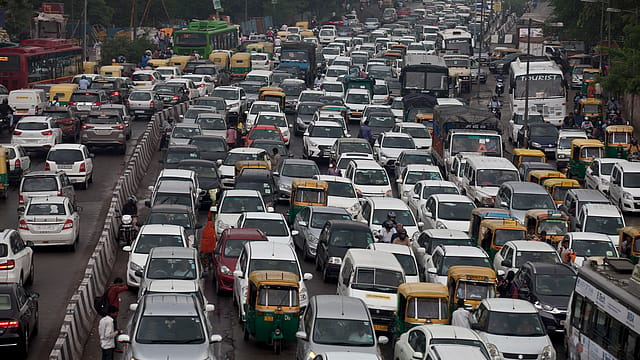No major announcement for the auto industry in Interim Budget
ADVERTISEMENT

In a bid to move towards a cleaner ‘new India’ by 2022, interim finance minister Piyush Goyal stressed on electric vehicle (EV) adoption as his vision for the next decade in his Interim Budget announced on Friday. The Narendra Modi-led government’s last Budget before the coming general elections talked about making India pollution free and reducing the country's dependence on crude oil and natural gas.
“This India will drive on electric vehicles with renewables becoming a major source of energy supply. India will lead the world in the transport revolution through EVs and energy storage devices, bringing down import dependence, and ensuring energy security for our people,” Goyal said in his speech.
He said that the government has taken a large number of measures to moderate the increasing demand through the use of biofuels. The automobile industry feels that the long-term focus on electric cars with continued growth of road and infrastructure indicates that some key policy developments are expected soon.
While no major announcements on India’s electric future in this Budget, Goyal stressed the urgency of moving to electric and alternative technologies and increase hydrocarbon production to reduce imports.
Sohinder Gill, director general of the Society of Manufacturers of Electric Vehicles (SMEV), said, “The government’s focus on the use of clean energy in the transportation sector would certainly help our country tackle the issue of climate change. We hope the government would soon announce a concrete plan of action with its time-bound implementation to fulfill its stated vision.”
SMEV feels that initial incentives and actions must be taken in the next one or two years to relaunch the electric mobility mission that has sort of lost steam in recent years due to the flip-flop of policies. “We have witnessed that EVs are more popular in semi-urban and rural areas. Government allocation of Rs 19,000 crore under the Pradhan Mantri Gram Sadak Yojana would further expand the market for EV manufacturers,” Gill said.
Shekar Viswanathan, vice chairman and whole-time director, Toyota Kirloskar Motor, said, “We applaud the government's focus on EV towards reducing fuel import. The vehicle emission-based tax regime would boost this EV vision— towards achieving a cleaner and greener environment. We hope the tax revenues will continue to grow, enabling the implementation of the Budget announcements.”
The industry received the EV push well but was rather disappointed as there were no major announcements on the goods and services tax (GST) cut for the automobile industry.
“It is sheer disappointment for the automobile industry due to no tax cut on GST and no tax benefit for alternative fuel vehicles,” said Gaurav Vangaal, senior analyst, IHS Markit.
The government also announced that individuals with income up to Rs 5 lakh will not have to pay any income tax. “This is expected to impact the first time buyers who are looking to buy small vehicles like Hyundai Santro, Maruti Suzuki Wagon R, Renault Kwid, etc.,” Vangaal added.
Grant Thornton India’s partner Sridhar V said that while this Interim Budget has not come up with any specifics for the sector, the enabling ones are the changes to income tax provisions—especially catering to salaried class as well as the income support to farmers—which are expected to leave more cash savings, some of which will find its way to purchase of vehicles.
The government’s allocation of Rs 19,000 crore for development of rural roads is also going to impact the automotive industry in a big way. “With a focus on rural India, this year’s Budget will help boost the demand for tractors, farm equipment, and light commercial vehicles. Also, the government's allocation of Rs 19,000 crore for development of rural roads, will give a boost to the construction equipment industry, thereby driving demand for two-wheelers and small cars,” Vinodkumar Ramachandran, head, industrial manufacturing and automotive, KPMG India, said.